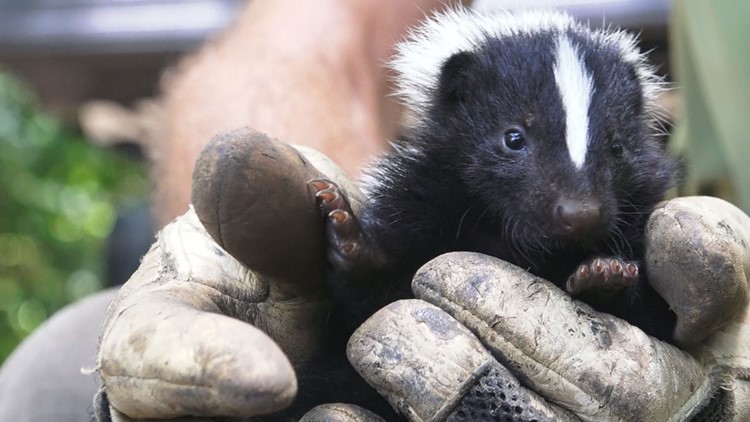KNOXVILLE, Tenn. — When I moved into my house, I was sent a pamphlet from the Knoxville Utilities Board that discussed natural gas safety. I quickly glanced over the pamphlet and took a whiff of the "scratch-and-sniff" paper that helped me recognize the putrid smell added to the gas lines.
Six months later, I almost immediately recognized the smell when I woke up in the middle of the night. After much debate with myself and some slight panicking—I decided to call KUB and tell them that my house possibly had a gas leak.
A technician quickly came out, checked everything and found no leak. He did, however, see a skunk very close to my house.
I felt silly but the technician quickly reassured me that this is a common occurrence—especially during this time of year.
KUB has over 100,000 customers who use natural gas to generate electricity and heat. It has plenty of benefits: it's more affordable, it reduces your home's emissions and usually it remains on during power outages.
However, it is a very dangerous situation if a gas leak occurs. KUB Communications Analyst Marisa Rios said that the provider does see an uptick in potential gas leak calls during the winter.
"And so even recently, we saw a good number of calls from just this January," Rios said. "And of course, it was really cold outside. So, a lot of people are turning on their heat."
KUB adding the rotten smell to natural gas is very beneficial as it helps residents recognize a potential leak.
"We do put an odor in our natural gas lines," she said. "Smell is really the most common way that people will recognize a natural gas leak."
However, it also happens that this cold time of year coincides with skunk mating season.
"February and early March is the breeding season for skunks here in East Tennessee and across the region," Tennessee Wildlife Resource Agency Spokesperson Matt Cameron said.
Cameron said male skunks typically move a mile or a mile-and-a-half a day. However, during skunk mating season, they'll travel up to four to five miles a day.
"They do find their way to people's porches and a lot of time crawlspaces underneath homes," Cameron said. "I don't think there's any place that would be unusual to find a skunk anymore."
Since skunks can admit their odor about eight to 10 feet and tend to be near residential spaces, people who are using natural gas could mistake a skunk who sprayed nearby as a gas leak.
There are a few different ways other than smell to determine if a gas leak is occurring. You might see brown or dead grass in an area where a natural gas pipeline is. You may also hear a hissing or blowing sound near your pipes.
If you suspect a natural gas leak is happening in your house, it's important to immediately leave the area and not do anything that might cause a spark. Ultimately, it is better to be safe than sorry.
"KUB takes it very seriously when it comes to a possible gas leak in your home, business or wherever it may be," Rios said.
If you are a KUB customer, you can call the company and they will respond for free to investigate the gas leak.



